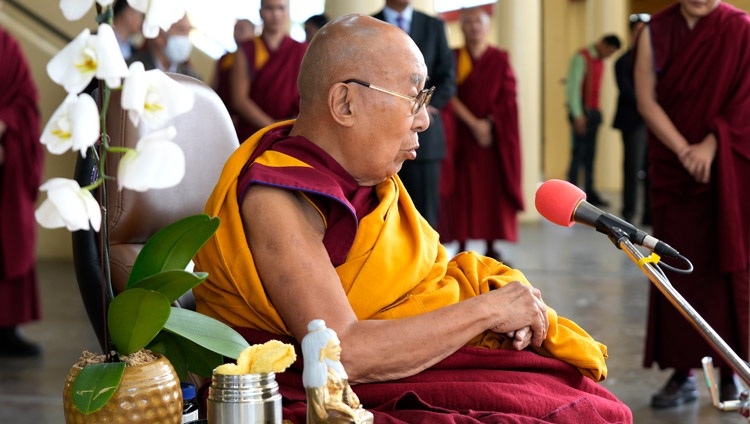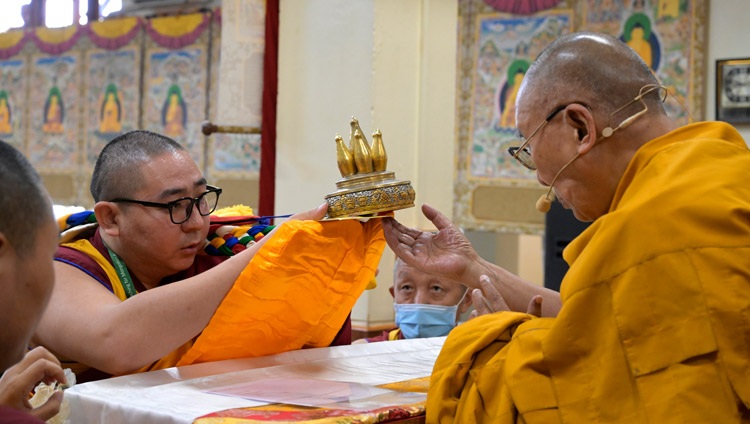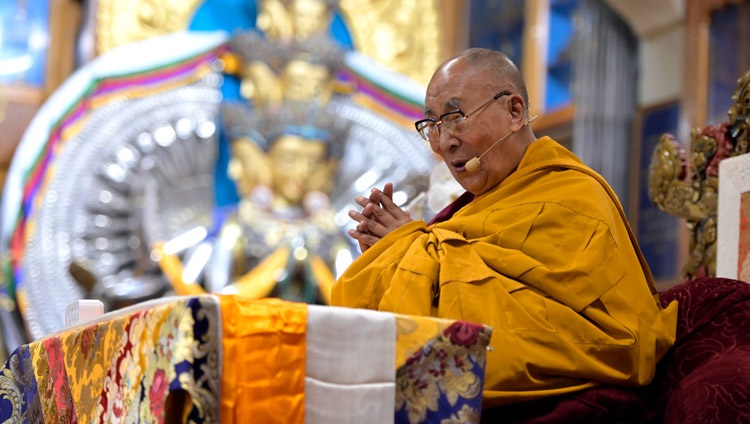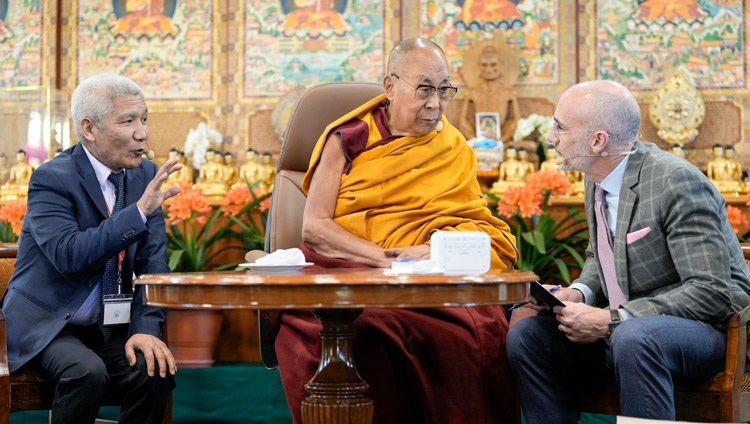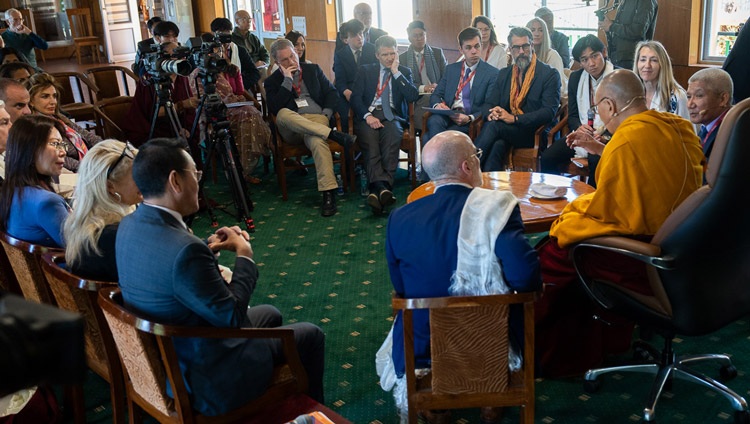Seminar calls for Freedom of Tibet
Delhi: Core Group for Tibetan Cause, India organizes a Seminar “50 years of Chinese Aggression against India and The Question of Tibet’ at Rajendra Bhawan, New Delhi yesterday to commemorate the 50th anniversary of Sino-Indian War happened in 1962.
Dr. N.K. Trikha, convener of Core Group opened the session by welcoming all the prominent panelists, belonging to diverse backgrounds. He said, “the Chinese aggression of 1962 raises many questions of the objectives of China in waging the war. Despite the rhetoric slogans of Hindi-Chini Bhai Bhai and Panchsheel Agreement, China betrayed India by repudiating the terms of agreement.” “China claims that India with its forward policy and its development on the borderland, had tempted the Chinese to initiate the war.” Dr. Trikha expressed that the cause of the Sino-India War was not Tibet, rather it lies in the China’s attitude towards India, who stands to give a lesson to India.
General N.S. Malik, (Retd.) Former Deputy Chief of Army Staff acknowledged that Tibet is very much related to the Sino India discourse and he says, “Anything and everything that happens in our northern borders, it connects with Tibet. Since the day, China occupied Tibet, the border issues happened. Unfortunately, we did not consider it important.” He said that the major problem lies in the lack of political will on our side. While looking back at the Sino-India War, the mindset of then political leaders had created a gloomy picture where people accepted the defeat. He confirms that China unilaterally ceased fire on 20 November 1962 due to the logistic problems of holding their positions in India. General also questioned whether 1962 war was really a war or a border conflict. He said that in this present time, China can not walk over the borders like they did in 1962.
Ambassador Ranjit Gupta narrated a historical aspects of the 1962 war and the Indian leaders view on Tibet. He said that ‘Tibet became a first victim of Nehru’s quest of building a relation with China’. Despite many thoughtful inputs by his senior leaders, Nehru opted a wrong policy on Tibet. “India was far more concern about China than us”, claimed Ambassador Ranjit. He expressed that China must not given a free pass to dictate our policy. 1962 war is a lesson which we have to learn. Regarding our policy vis-à-vis China, India have to learn firmness without provocation. It was a right and proper decision to give refuge to His Holiness the Dalai Lama and thousands of Tibetans when China occupied Tibet. Hence, political parties must come to the consensus to give full support to the Tibetans in liberating their country.
Major General Vinod Saighal (Retd.) expressed that Mao Tsetung planned it well to teach India a lesson so that Tibet issue will not come into the limelight. He said, ‘we keep on talking about Sikkim, Arunachal Pradesh, Jammu and Kashmirm but we do not talk about Tibet. He confidently said that 1962 war will not happen again, as Indian are now having much better knowledge about China. On regarding Tibet issue, he says if the border issues were resolved, the Tibet issue would have come to an end.
Mr. Balbir Punj, Member of Parliament, Rajya Sabha narrates a wellknown Urdu proverb, which means “Slight mistake happens in a few seconds will cost a centuries of error’. He said that if farsighted approaches were taken in 1950s, the occupation of Tibet and the constant problems over the border areas would not have happened. he spoke in detail of the Chinese mindset, which are visibly arrogant in nature, citing the concept of Middle Kingdom and the Confucius ideology. Mr. Balbir explicitly mentioned that Tibet was a buffer state and has equal relations with India and China. For the past 50 years, we are not able to move forward and help His Holiness the Dalai Lama, but one day, Tibet will be free and China will be shown its place, said Mr. Balbir.
Mr. Thubten Samphel, Director of Tibet Policy Institute gave a brief outline of China’s invasion of Tibet. He stressed that China’s occupation of Tibet was prompted by 1904 Young Husband expedition to Tibet. Due to the British imperialist expansionism, China feared of losing Tibet, that was considered a backyard of China and started refocussing their attention towards Tibet. Secondly, Mr. Samphel explained of two different agreements namely, 1913 Shimla Agreement and 17 Point Agreement of 1951 and how the agreements were treated by the Chinese. He opened a new discourse where the scholars should explore on how China changes its positions in recognizing the agreements made with Tibet as per their convenience. Mr. Samphel said that Cultural Tibet, spreading across the Himalayan belts inherited by the virtue of Buddhist traditions had contributed much to India. Government of India must work to help resolve the Tibet issue, where the Exile Tibetan Administration vouch for Middle Way Policy to resolve the long standing problems.
Dr. Anand Kumar lamented that no serious debates on Tibet was tabled in the Indian parliament for the past so many years, even though Indian masses sympathize with the Tibetan cause and knows well about the 1962 Sino-Indian war. He said that, ‘ to save Himalaya is to save Tibet from the Chinese invaders. In order to do so, he suggested that ‘we should pass on the message to the Indian parliament to put more resolute efforts to help Tibet in their freedom struggle.
Finally, Mr. Vijay Kranti, a well known Tibet friend told that Tibet was our neighbor along the himalaya ranging from Kashmir to Arunachal Pradesh and rejected China being India’s neighbor. He stressed on China’s strategy with regarding India, namely ‘String of Pearls’. With the development of railway line and roadways inside Tibet, Chinese armies can reach anywhere in India. Such infrastructures helped mainland Chinese to settle in Tibet, which made Tibetans in Tibet a meaningless minority inside Tibet. He explicitly said that Independence of Tibet is more important to Indians than Tibetans, taking into considerations of vulnerability of Chinese militarization inside Tibet.
More than a hundred Indians and Tibetans living in Delhi attended the seminar.
The seminar was jointly organized by Bharat Tibbat Sahyog Manch, Indo-Tibetan Friendship Society, Himalayan Committee for Action on Tibet, Friends of Tibet-India, Students for a Free Tibet-India, Youth Liberation Front of Tibet, Himalaya Parivar, Rashtriya Muslim Andolan.

(From left: Dr. N. K. Trikha, Major General Vinod Saighal (Retd.), Dr. Anand Kumar, Lt. General N.S. Malik (Retd.), Ambassador Ranjit Gupta, Mr. Thubten Samphel and Mr. Vijay Kranti)

